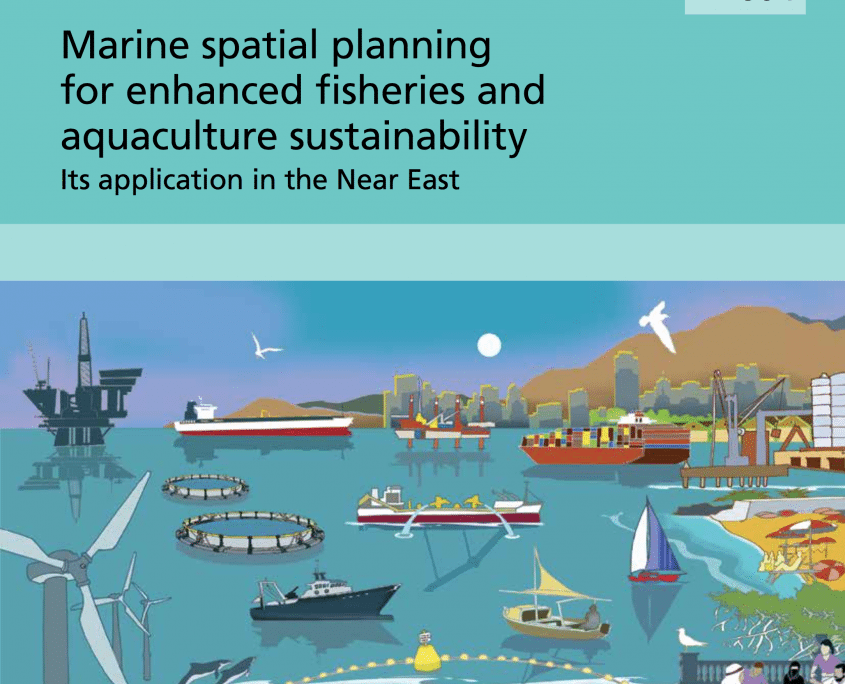
MaREI Researcher Author on New Publication on Marine Spatial Planning for Fisheries & Aquaculture
New publication on Marine Spatial Planning for Fisheries & Aquaculture
MaREI Researcher, Anne Marie O’Hagan, is one of the authors of a new publication on Marine Spatial Planning for enhanced fisheries & aquaculture sustainability in the Near East

MaREI researcher Anne Marie O’Hagan is one of the authors of a new publication, Marine Spatial Planning for Enhanced Fisheries and Aquaculture Sustainability – its application in the Near East, which is now available online.
This document provides a clear and comprehensive account for the application of marine spatial planning (MSP) within the Regional Commission for Fisheries (RECOFI) region. It builds on regional technical workshops, held under the auspices of the Food and Agriculture Organization of the United Nations (FAO), aimed principally at improving the prospects for fisheries and aquaculture in the Near East.
Marine spatial planning provides a step-by-step process that allows for the cooperative integration of the major marine uses and users within a defined marine area. These ordered procedures allow all stakeholders to work towards ensuring the long-term sustainability of identified marine activities. The principles of the ecosystem approach to both fisheries and aquaculture can readily be incorporated into the process. The output of MSP is the development of a plan that addresses any potentially conflicting uses of the sea, thus enabling the strategic, forward-looking planning for the regulation, zoning, management, protection and sustainability of the marine environment. MSP can best function if it includes continuing reinforcement and adjustments of learned experiences over a long time period.
The document includes three important annexes. The first includes the main recommendations concerning the adoption of marine spatial planning taken from the RECOFI (FAO) Cairo workshop in 2012. The second exemplifies how MSP might best be adopted in Saudi Arabia, with emphasis being placed on the types of marine activities that must be considered and the range of data and their sources that should be procured. The third annex provides a comprehensive listing of additional information about MSP, including worldwide examples where MSP has been applied under varied local conditions at highly variable geographic scales.For further information contact:
For more information contact:
Dr. Anne Marie O’Hagan
University College Cork
Email: ei.ccu@nagaho.a
Phone: +353 (0)21 486 4325
Dr. Anne Marie O’Hagan is a Senior Research Fellow in the MaREI Centre, ERI, UCC and has over 15 years of experience in applied marine and coastal research. Her background is in environmental science and law. Anne Marie’s recent work has focused on the legal aspects of ocean energy development, planning and management systems for offshore energy devices and their environmental effects. She is involved in a number of multidisciplinary projects focused on aquaculture, maritime spatial planning, environmental assessment, and risk-based consenting. Anne Marie represents MaREI on a number of working groups including the International Energy Agency’s Ocean Energy Systems Agreement (IEA-OES), the EC’s Ocean Energy Forum Environment and Consenting Steering Committee, ICES Working Group on Marine Renewable Energy and the all-Ireland Marine Renewables Industry Association (MRIA). She also teaches on the LLM in Marine Law (Law School, UCC) and the MSc in Applied Coastal and Marine Management (Department of Geography, UCC).


